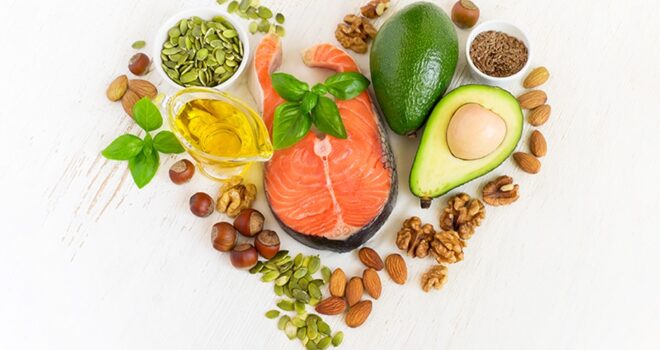Fat is often shunned, even though it’s something we all need. Not only does it provide us with essential fatty acids, it’s also an ideal partner for vegetables, making them delicious for young and old alike.
On the one hand, fat can be mistrusted by those who want to eat healthily. On the other hand, fat, like sugar, is a crucial part of our diet that our bodies appreciate: The moment it arrives in our mouths, specialised receptors inform our brain of the arrival of calories, which it considers positive. In fact, despite their bad rap, calories are indispensable for life! That’s why our brains reward us with a bit of dopamine, a neurotransmitter that briefly improves our mood. This reward system shows us that fat is valued. The downside of this system is that, when fat is abundant, it can easily encourage us to consume too much. That means it’s important to choose the right fats and use them wisely. Fat can render vegetables, which are naturally low in fat, a lot tastier, making it easier for us to eat the recommended daily vegetable intake of 300 g.
How to choose ‘good’ fats?
‘Good’ fats don’t damage blood vessels, don’t increase cholesterol levels, and provide essential fatty acids. Essential fatty acids are a bit like vitamins; we need them, and we can’t synthesise them (at least not in sufficient quantities), so we have to consume them as part of our diets. ‘Good’ fats are found primarily in plant oils – with the exceptions of palm oil and coconut oil –and in nuts, grains and fatty fish. Most plant oils contain the essential fatty acid omega-3. You can get it from rapeseed, walnut, linseed, camelina and wheatgerm oils.
‘Bad’ fats are rich in saturated fat, which, when consumed in excess – as is often the case in industrialised nations – increase cholesterol levels and thus the risk of cardiovascular diseases. They are found mainly in the animal kingdom (butter, suet, lard, cold meats, etc.), though not in fish, and also in palm and coconut oil. Then there are also trans fats, which are the result of hydrogenation, an industrial process used to harden oils. But don’t panic! A little butter with your spinach is entirely compatible with a balanced diet.
Read more: How to avoid food waste?
The role of fats in the Mediterranean diet
The Mediterranean diet is known for its health benefits and remains one of the, if not the reference model for many scientists. It’s about more than just olive oil: it’s rich in vegetables, fruit, pulses and minimally processed cereals, supplemented by fish, and with relatively small amounts of red meat and sugars. Olive oil, the only added fat source, does play an important role: not just because it’s considered healthy in its own right, but also because it can make vegetables much tastier, for example as a salad dressing, for cooking vegetables, or in various dishes.
As well as olive oil, nuts and grains are fantastic ways to boost your salads and other vegetable dishes.
So, are you still scared of fat? It depends!



 Cauliflower
Cauliflower  Carott
Carott  Vegetable garden: growing garlic
Vegetable garden: growing garlic 









